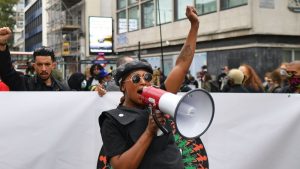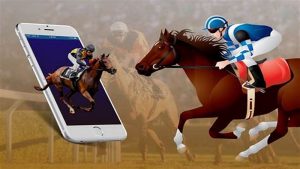![Occupy Language: The [word] is mightier than the sword](https://hellaoccupyoakland.org/wp-content/uploads/2023/04/92..jpg)
Semantics are often dismissed with defensive snarkiness denouncing the “PC police” or accusing the offended of detracting from the “real issues” by quibbling over hurt feelings. We do have to be careful not to lose sight of the bigger picture, and we must stay focused on the goal(s), but we also need to pay attention to the edge on our swords. If we win the battles fought by our movement while cutting down others’ dignity and autonomy, then what have we really won? How are we any better than the oppressors we’re fighting?
Language is extremely powerful. That old saying “sticks and stones may break my bones, but words cannot hurt me” just isn’t true. Children are killing themselves because of hurtful words from bullying and abuse. No one likes to be insulted, invalidated, or ignored.
Some of the most admirable efforts of the Occupy movement have involved giving a voice to as many people as possible, particularly those who have not been allowed a voice in the past, while respecting their autonomy and fighting for the dignity of all. Our movement could be made even stronger by using our individual voices to empower us all as a whole, with more thoughtful language choices.
Now, I’m not expecting anyone to become an expert etymologist. I’m certainly not one either, and I am constantly learning. What I am expecting is for all of us to listen to each other when someone feels oppressed. I am expecting each of us to think before we speak, and ask ourselves “am I expressing myself in the most empowering way in order to avoid causing harm to, or alienating, my fellow autonomous comrades?”
Two of the biggest oppressive words heard regularly, even in everyday conversation, are “lame,” and “retarded.” For the vast majority of people, these words have been part of their vocabulary since grade school, and they’re not used to purposefully oppress other individuals. Unfortunately, their roots are not benign.
The word “lame” historically referred to someone (human or non-human) who walks differently, due to illness, injury, or disability. To say “that’s so lame!” is likely said with the intention of “that’s the worst!” (or stupid, ridiculous, awful, pointless, useless, uncool, or other negative connotation), but what that person is literally saying is “that’s so [disabled]!”
Someone who is literally lame is not being “oversensitive” when they express their displeasure at being compared to something unpleasant. They’re being realistic. While the speaker may not have intended to insult, it is the speaker’s duty to grasp the meanings of the words they use, and expand their vocabulary accordingly.
The word “retarded” is a little more obvious. While the medical community has moved away from mentally/intellectually or physically “retarded” as a diagnosis (instead “disabled” is used), the history is still there. The word “retarded” is used in today’s language to insult someone’s intelligence or something’s usefulness.
Again, the speaker’s intent does not excuse the long history behind the word. Using the word out of ignorance does not specifically make the speaker an asshole, but knowing the word’s meaning and history and still choosing to use the word does, actually, make them an asshole. I feel so strongly about the “r-word” that I can’t even argue this point any further. Just stop saying it, okay? (PS: for more info check out http://www.r-word.org/ okay?)
We’ve come a long way from using the “N-word,” right? This is not different.
While not directly about disabilities and ableism, there’s a lot of overlap with the word “fat.” We throw around the word “fat” (and plenty of synonyms) and it’s always a negative reason. “Fat cats on Wall Street” comes up often when talking about the 1%, but why are the “cats” fat? Fatness is assumed to be the result of overindulgence, greed, laziness, unsightliness. The media (and the diet industry) has done a great job teaching us that fatness is always bad, equating it with unclean, unattractive, unintelligent, dishonest, sluggish, clumsy, shameful: and we should fear and ridicule all things fat. We should strive to be anything but fat.
This is not the time or the place to discuss the fact that body size is determined by a number of factors (most of which are beyond the individual’s control, and many of which are directly related to socioeconomic status, so that the poorest among us and those in minority groups are often larger), but what does matter is that body shaming and body policing has no place in any movement that’s trying to advance society. Since many people with disabilities are also people of size, and since size discrimination is deeply ingrained in our culture, this is an important word to address. In short: Telling people (including yourself) to get off our fat asses and wake up to the injustice around us is a gross hypocrisy.
Language can also be violent (killing two birds with one stone, more than one way to skin a cat, kicking a dead horse, “kill me now,” threatening to kill oneself if some arbitrary thing happens: can you think of others?), and violent language precedes violent intentions. That’s not to say anyone who uses these phrases will someday skin a cat or throw stones at birds, but framing a non-violent (and often trivial) situation in a violent way makes light of the very serious impact of violence in our world, and desensitizes all of us to violence of all kinds.
We also imply many assumptions about others with our language choices. Again, while the intention isn’t to hurt our comrades, it does not change the fact that assumptions can be hurtful.
One of the biggest assumptions faced by people with chronic illnesses or disabilities? “But you don’t LOOK sick!” (I’ll wait for my fellow OWDs to stop cringing now.)
Again, this isn’t usually meant to be an insult, and on the surface it sounds like it should be a compliment. There are really (at least) two things wrong with saying things like this. The first is the implication that to look sickly is to look badly. Being ill is something undesirable and unacceptable, and to be sick is to appear a certain way (pale, ashen, unkempt, emaciated, cadaverous) that clashes with how our society defines aesthetics. Perhaps one looks sickly while limping, using a mobility device, or sniffling and coughing.
In reality, illness does not have a specific appearance, and illness is neither good nor bad; it simply is what it is. I don’t know anyone who actually enjoys being sick, but I do know many people who cannot control their illness or how that illness makes them look on any given day. Many symptoms (such as depression, pain, or fatigue) are not visible to the outside world, but are a very real part of every day life for some people. The majority of chronically ill people also have good days and bad days, and may “look” different at those times. (Some are also really good at masking their symptoms regardless of how they’re feeling on a given day.)
These stereotypes are especially harmful because it essentially discredits an Occupier’s life experiences as a person with a chronic illness (or disability), making the assumption that the OWD is not actually sick at all, or is not sick enough to elicit empathy.
Instead of commenting on an OWD’s appearance, how about offering a smile and appreciating the effort it took for the OWD to be alongside you? If you must comment on someone’s appearance, compliment their badass protest sign, political t-shirt, or awesome shoes (but not their bodies). If you’re able, you might choose to offer some kind of assistance (such as giving up a chair or taking a more direct route walking to a destination), but the majority of chronically ill people are not talking about their illnesses to illicit assistance or sympathy; they’re just trying to help you know and understand them better so that we can better work together to improve our world around us.
(A note here: this is also not an invitation to suggest treatments or cures for the OWD’s condition, no matter how much your great uncle’s neighbor’s brother swears by his Miraculous High-Potency Ultra Purified Snake Oil for the exact same diagnosis. Thanks.)
And, finally, the call to action: “Get off the couch and into the streets!” (or “Get out from behind the keyboard and get involved.” or some other variation thereof, often with a touch of body shaming involving one’s enormous posterior). This implies the only true actions are the ones taking place in the streets. It discredits the immense behind-the-scenes work taking place outside the encampments by citizen journalists, bloggers, artists, writers, petition-drafters and -signers, phone-call-makers.
It discredits the workplace (supermarket, doctor’s office, dog park) conversations raising awareness and empowering others. It discredits the people who physically cannot do more than they’re doing (not just because of an illness or disability, but because of their geographic location, their financial situation, or other life or family obligations). It discredits the vast majority of the 99%, who support the movement but cannot just rush out into the streets because someone said so. And even if they did: what then? Not only are these randomly vague calls to action insulting, but they’re kind of ridiculous. Come up with a plan and then invite us along, and see what happens. Don’t assume everyone who isn’t physically occupying is doing so out of laziness or apathy.
Again, generally speaking, those of us in marginalized groups do not think the rest of the 99% are consciously trying to insult or alienate us. But it’s very difficult to feel empowered and inspired when someone is trying to empower and inspire us by using our bodies as the best example of the Worst Thing Ever. Is it really so difficult to aim for a more mature, accurate and descriptive vocabulary? These words of oppression will continue to hold us back from reaching our full potential as a society. This is not about perfection or the “PC Police.” This is about basic human dignity and respect, and the desire to empower 100% of the 99%.








